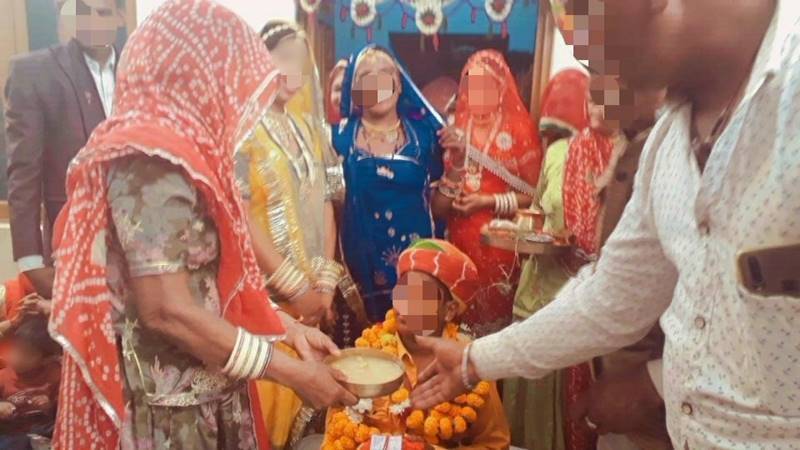Child marriage is a practice that infringes on the rights and capabilities of adolescents, mostly young girls. Then, early pregnancies also result in poor maternal and child health.
A study commissioned by the Population Foundation of India, titled Investing in Adolescent Development – A Case for India, on why the government needs to invest in young people’s health, education and well-being, suggested ways to reduce child marriages in India.
It proposes a programme of a monthly conditional cash transfer of Rs 200 to families of the girl child, which is tied to their attendance in schools.
The study pointed out that schooling can prevent early marriage. It also empowers girls to get better livelihood opportunities and therefore encourages and enables families to let their girl child attend school longer.
“This can help hasten the reduction in child marriages. The cash transfer will incentivise the family of the girl child to delay the marriage to a legal age,” read the study, which was released yesterday on November 16, by Bibek Debroy, Chairman of the Economic Advisory Council to the Prime Minister.
Population Foundation of India is a national non-profit working for the effective formulation and implementation of gender sensitivity. The survey it commissioned was conducted by the Institute for Competitiveness, India, that supports and conducts indigenous research.
Also Read: 13-year-old girl, 38-year-old ‘bridegroom’ and a payment of Rs 100,000 for ‘marriage’
India is home to 223 million child brides
According to the 2019 report by United Nations Children’s Fund titled Ending Child Marriage: A profile of child marriage in India, India is home to over 223 million child brides. The country accounts for about a third of the global incidence of child marriage.
The government’s National Family Health Survey-4 (2015-16), estimated that about one in four young women in the country have been married before 18 years of age. The study pointed out that the girls who are married before 18 years of age are more likely to be those who are less educated, reside in rural areas, and live in poorer households.
As per the NFHS, more child marriage cases were recorded in rural areas than in urban — 31.5 per cent compared to 17.5 per cent. Less educated girls were more likely to be married early.
The COVID19 pandemic seemed to have worsened the predicament. A recent UNICEF study titled COVID-19: A threat to progress against child marriage warned that 10 million additional child marriages might occur globally due to COVID19.
What can be done?
The study examines various approaches to reduce child marriage and the costs and benefits from adopting one such approach in the Indian context. The programme proposed by this study is aimed at girls enrolled in class VIII onwards in government and government-aided schools across the country.
A cash transfer of Rs 2,400 per year (or Rs 200 per month) can be made to unmarried girls in these grades provided they maintain the minimum required attendance in school, the study suggested. “The cash transfer can be made directly into the bank account of the girls so that they have more agency over decisions regarding their education.”
With this approach, the study projects, the dropout rate in schools of the beneficiary population will fall by 26.8 per cent and the incidence of child marriage will reduce by 32.92 per cent in the country.
This pan-India programme focussing on girls above 13 years of age is estimated to cost the country Rs 7,000 crores [Rs 70 billion]. This amount, as per the study, is equivalent to about 0.035 per cent of the gross domestic product (GDP). By spending this amount, India could generate benefits worth more than Rs 22,344 crore [Rs 223 billion] — over thrice the investment.














